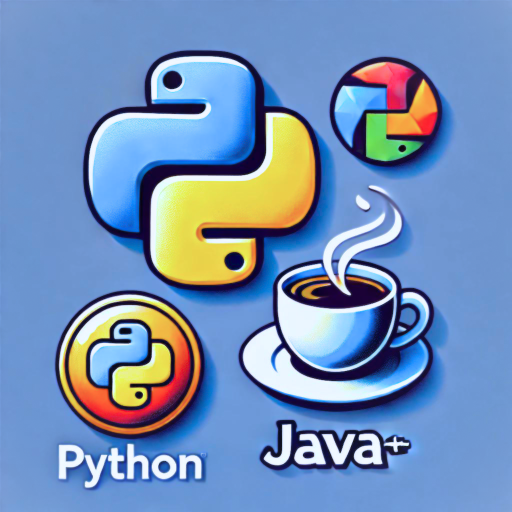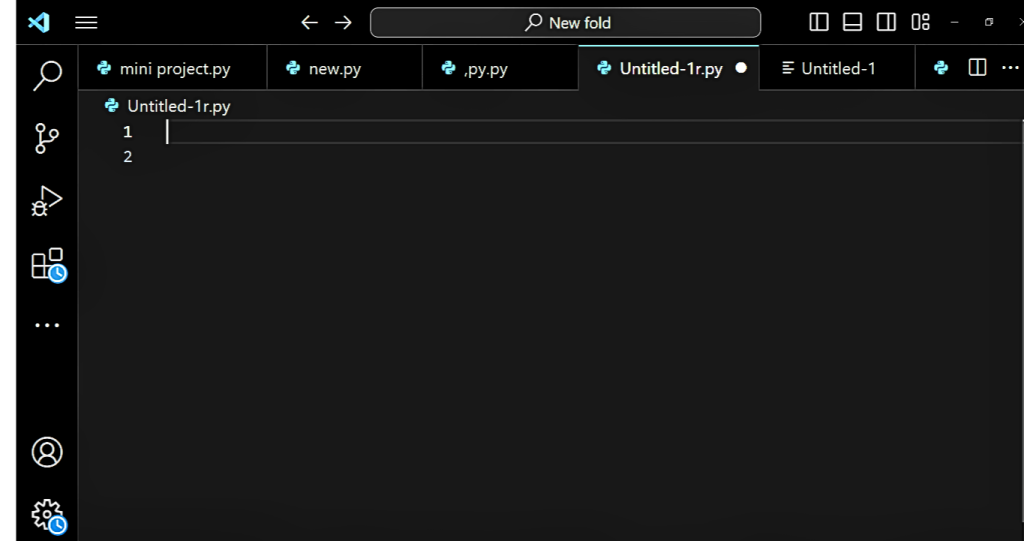The Complete Guide to Freelance Programming: Platforms, Coding Languages, and Maximizing Success
Introduction to Freelance Programming
Freelance programming is rapidly becoming one of the most sought-after professions in the digital age. With the rise of the gig economy, more individuals are finding the flexibility and financial benefits of freelancing appealing. Whether you’re a seasoned programmer or someone just starting, diving into freelance programming offers a world of opportunities. This comprehensive guide will explore the essentials of freelance programming, including job platforms, coding languages software, strategies to succeed in this competitive field.
Embracing the Freelance Lifestyle
Freelancing offers the freedom to work on your terms, but it requires discipline, skill, and strategy. The lifestyle comes with its perks—flexible hours, the ability to choose projects, and the potential for high earnings—but it also demands excellent time management and self-motivation. Balancing work and life as a freelancer can be challenging, but with the right approach, it can lead to a fulfilling and prosperous career.

Carving Your Niche
One of the first steps to success in freelance programming is identifying and carving out your niche. Specializing in a particular field or technology can set you apart from the competition. Whether it’s web development, mobile app development, data science, or game programming, finding your niche allows you to focus your skills and market yourself effectively.
Mastering Top Programming Languages
To excel as a freelance programmer, mastering the right programming languages is crucial. The following are some of the most popular and in-demand languages in the freelance market:
- JavaScript: Essential for web development, JavaScript allows you to create interactive websites and is a must-learn for front-end developers. With frameworks like React and Angular, JavaScript continues to dominate the web development scene.
- Java: A powerful language for building enterprise-level applications, Android apps, and large systems. Java’s robustness makes it a valuable skill for freelancers working on complex projects.
- Python Programming and Freelancing: Python is a versatile, easy-to-learn language used in web development, data science, AI, and automation. Its simple syntax and strong community support make it a great choice for beginners and a valuable tool for freelancers.

4 . C++/C#: These languages are commonly used in game development and software engineering. If you’re interested in freelance game programming, learning C++ or C# is essential.
5. PHP: A server-side scripting language used to create dynamic web pages, PHP is still widely used, especially in WordPress development.
6. Ruby: Ruby is known for its simplicity and high productivity, making it a popular choice for web development, especially with the Ruby on Rails framework.
The Remote Work Renaissance
The rise of remote work has been a significant factor in the growth of freelance programming. Companies are increasingly open to hiring remote talent, and freelancers are capitalizing on this trend. With the right setup, you can work from anywhere in the world, provided you have a reliable internet connection. This flexibility allows you to balance work and life while pursuing projects that interest you.
Freelance Computer Programming Job Platforms
Finding work as a freelance programmer requires leveraging the right platforms. Here are some of the most popular freelance programmer job platforms:
- Upwork: One of the largest freelance marketplaces, Upwork offers a wide range of programming jobs, from web development to AI and machine learning. Visit Upwork.com for more information.
- Freelancer: Similar to Upwork, Freelancer allows you to bid on projects and showcase your skills through contests and portfolios.
- Toptal: A marketplace that links skilled freelancers with clients seeking top talent. Toptal has a rigorous screening process, making it ideal for highly skilled programmers.
- Fiverr: Known for its “gig” model, Fiverr allows you to offer specific services at set prices. It’s a great platform for freelancers offering specialized skills. Visit Fiverr.com for more information
- Guru: Another popular platform where freelancers can showcase their portfolios and bid on projects.
- Hired: Focused on tech jobs, Hired connects freelancers with startups and established companies looking for programming talent.
- PeoplePerHour: A platform that connects freelancers with clients based on hourly rates, making it ideal for long-term projects.
Taking the Leap: Becoming a Freelance Programmer
Starting as a freelance programmer involves more than just technical skills. To kickstart your journey, these fundamental steps are essential:
- Crafting a Compelling Portfolio: Your portfolio is your platform to shine. Include your best work, whether it’s personal projects, open-source contributions, or previous freelance work.
- Finding and Securing Clients: Networking, cold pitching, and leveraging job platforms are key strategies. Building a strong online presence through a website or blog can also attract clients.
- Establishing Your Rates: Setting your rates can be tricky. Look into industry benchmarks, factor in your experience, and be upfront with clients about your pricing structure.
- Managing Projects and Deadlines: Effective project management is crucial. Utilize tools like Trello, Asana, or Jira to manage tasks and stay on top of deadlines.
- Legal and Financial Considerations: Understand the legal aspects of freelancing, including contracts, taxes, and intellectual property rights. Seeking advice from a lawyer or accountant can be advantageous.
- Cultivating a Thriving Freelance Business: As you gain experience, prioritize building long-term client relationships, expanding your skill set, and consistently delivering high-quality work to foster sustainable success.
What Programming Language Should I Learn First?
Choosing your first programming language depends on your goals:
- For Web Development: Start with HTML, CSS, and JavaScript.
- For Data Science: Python is the go-to language.
- For Game Development: C++ or C# are excellent choices.
- For Mobile App Development: Swift for iOS or Kotlin for Android.
- For General Programming: Python is often recommended for beginners.
| PROGRAMMING LANGUAGE SPECIALIZATION | PROGRAMMING LANGUAGE |
|---|---|
| Web Development | HTML,CSS AND JAVA SCRIPT |
| Data Science | PYTHON |
| Game Development | C++ AND C# |
| Mobile App Development | SWIFT AND KOTLIN |
| General Programming | PYTHON |
Easiest Programming Language to Learn
Python is often considered one of the most beginner-friendly programming languages. Its straightforward syntax, clear readability, and robust community support make it a top choice for newcomers to coding.
Best Coding Language for App and Website Development
- For Websites: JavaScript, HTML/CSS, and PHP are essential.
- For Mobile Apps: Swift (iOS) and Kotlin (Android) are the top choices.
The Fastest and First Coding Language to Learn for Beginners
Python is not only easy but also fast to learn, making it an excellent first language for beginners. Its versatility means you can use it in various fields, from web development to data science.
Top 10 Coding Languages for Software Development
- Python
- JavaScript
- Java
- C++
- C#
- PHP
- Ruby
- Swift
- Kotlin
- TypeScript
Freelance Game Programmer: A Growing Field
The gaming industry is booming, and freelance game programmers are in high demand. Specializing in game development can be a lucrative niche, with opportunities in both indie game development and larger studios. Knowledge of languages like C++ and C#, along with game engines like Unity and Unreal Engine, is essential.
AI and Data Learning: The Future of Programming
Artificial intelligence (AI) and data science are revolutionizing the tech industry. Freelancers with expertise in AI and data learning and data annotation are highly sought after. Python is the dominant language in this field, with libraries like TensorFlow, PyTorch, and scikit-learn leading the way.
Internships and Entry-Level Jobs
Starting with internships or entry-level jobs can provide valuable experience and help you build a portfolio. These opportunities allow you to learn on the job, develop your skills, and transition into freelance work with a solid foundation.
Acceptance Rate of Coders in Different Countries
The acceptance rate for freelance coders varies by country and platform. Countries with strong tech hubs, like the US, UK, Canada, and India, often have higher acceptance rates on platforms like Upwork and Toptal due to the large talent pool. However, the competition is also fierce, and building a strong profile is crucial.
Tools and Resources for Freelance Programmers
Having the right tools and resources can make all the difference in your freelance career. Here are some essential tools:
- Version Control: Utilize Git and GitHub to effectively manage your code.
- Code Editors: Visual Studio Code, Sublime Text, or Atom.
- Project Management: Trello, Asana, or Jira.
- Communication: Slack, Zoom, or Microsoft Teams.
- Payment Processing: PayPal, TransferWise, or Payoneer.
- Portfolio Building: GitHub Pages, WordPress, or personal websites.

VS CODE BEST PROGRAMMING SOFTWARE. EASY TO LEARN.
Crafting Your Freelance Blueprint
Creating a solid plan for your freelance career involves setting clear goals, identifying your niche, and continuously improving your skills. Keep track of industry trends, invest in continuous learning, and always be ready to adapt to the changing market.
Maximizing Your Earnings
To maximize your earnings as a freelance programmer, consider the following strategies:
- Upskilling: Continuously learn new technologies and languages.
- Specializing: Focus on high-demand niches like AI, blockchain, or mobile development.
- Networking: Cultivate connections with clients and fellow freelancers.
- Marketing: Promote your services through a website, blog, or social media.
- Diversifying: Offer a range of services or explore different platforms.
The Future of Freelance Coding
The future of freelance coding looks bright. With the ongoing digital transformation, the demand for skilled programmers continues to grow. Emerging fields like AI, blockchain, and quantum computing offer new opportunities for freelancers willing to stay ahead of the curve.
Case Studies: Success Stories of Freelance Programmers
Case Study 1: Jane Doe – From Corporate Job to Freelance Success
Jane Doe was a software engineer at a large tech firm, working on backend systems. Although she had a stable job, she felt constrained by the corporate environment and desired more flexibility in her career. After some research and planning, she decided to transition into freelance programming. Jane started by taking on small projects on Upwork, focusing on her area of expertise—Python development and database management.
Over time, she built a strong portfolio, showcasing her ability to solve complex problems efficiently. Her reputation grew, and she began receiving invitations to work on larger, more lucrative projects. Today, Jane runs her own freelance business, earning double what she made in her corporate job, while enjoying the freedom to choose her projects and clients.
Key Takeaways:
- Specialization: By focusing on Python and database management, Jane carved out a niche that made her stand out in the crowded freelance market.
- Persistence: She didn’t see immediate success but consistently delivered quality work, which gradually built her reputation and client base.
- Diversified Income: Jane now offers consulting and training services, further increasing her income and providing stability.

Case Study 2: John Smith – Leveraging AI and Machine Learning
John Smith, a self-taught programmer, began his career working on small web development projects. Recognizing the growing demand for AI and machine learning expertise, he decided to pivot his career. John invested time in learning Python, TensorFlow, and various data science tools through online courses and tutorials.
After gaining proficiency, John started offering his services on platforms like Toptal, focusing on AI-driven projects. His ability to provide innovative solutions using AI quickly set him apart from other freelancers. John’s projects now include predictive analytics for financial firms, chatbots for customer service, and recommendation engines for e-commerce sites. His earnings have skyrocketed, and he’s now considered an expert in the field.
Key Takeaways:
- Niche Expertise: John’s decision to specialize in AI and machine learning allowed him to command higher rates and work on cutting-edge projects.
- Continuous Learning: His commitment to learning new technologies enabled him to transition into a high-demand niche successfully.
- Innovation: John’s innovative approach to projects helped him stand out, leading to repeat business and referrals.
The Role of Mentorship in Freelance Success
Finding a mentor can be a game-changer for aspiring freelance programmers. A mentor provides guidance, shares industry insights, and helps you avoid common pitfalls. Whether it’s helping you refine your coding skills, advising on client management, or offering strategic career advice, a mentor can accelerate your growth and confidence in the freelance world.
How to Find a Mentor:
- Networking Events: Attend industry conferences, workshops, and meetups where you can meet experienced professionals willing to share their knowledge.
- Online Communities: Platforms like GitHub, Stack Overflow, and LinkedIn have communities where you can connect with potential mentors. Feel free to contact individuals whose work you respect and admire
- Freelance Platforms: Some freelance platforms offer mentorship programs or forums where experienced freelancers offer advice to newcomers.
The Power of Networking
Networking is equally important for freelance success. Establishing a robust professional network can open doors to new opportunities, collaborative projects, and valuable referrals. A robust network also provides a support system, helping you navigate challenges and stay motivated.
Tips for Effective Networking:
- Join Professional Groups: Become a member of relevant online groups, such as those on LinkedIn, where you can engage in discussions, share your work, and connect with peers.
- Collaborate on Open-Source Projects: Contributing to open-source projects not only enhances your skills but also connects you with other developers.
- Attend Local Meetups: Participating in local tech meetups can help you meet other freelancers and potential clients.
Continuous Learning: Embracing Lifelong Education
The tech industry is continually advancing, with new programming languages, frameworks, and tools frequently emerging. To remain competitive as a freelance programmer, embracing continuous learning is crucial. Lifelong learning not only enhances your skillset but also keeps you ahead of industry trends, making you more attractive to clients.
Strategies for Continuous Learning:
- Online Courses: Platforms like Coursera, Udemy, youtube.com and edX offer courses on the latest technologies and programming languages. Regularly taking these courses can help you stay updated.
- Reading Technical Blogs and Journals: Follow blogs and publications like Medium, TechCrunch, and Stack Overflow for the latest industry news and insights.
- Experiment with New Technologies: Don’t hesitate to explore and experiment with new tools and languages. Building small projects or contributing to open-source communities can help reinforce your learning.
- Attend Webinars and Workshops: Many organizations and platforms offer free webinars and workshops on emerging trends. These are great opportunities to learn from experts in the field.
The Importance of Adaptability
Adaptability is key in the ever-changing tech landscape. As a freelancer, being open to learning and adapting to new technologies will ensure your skills remain relevant and in demand. It also allows you to pivot your career direction if needed, opening up new opportunities and revenue streams.
Frequently Asked Questions
Q: What is the best platform for freelance programming?
A: Platforms like Upwork, Freelancer, and Toptal are among the top choices for freelance programmers.
Q: How do I start as a freelance programmer?
A: Build a portfolio, choose a niche, and start bidding on projects through freelance platforms.
Q: What programming language should I learn first?
A: Python is highly recommended for beginners due to its simplicity and versatility.
Q: How do I set my rates as a freelance programmer?
A: Research industry standards, consider your experience, and be transparent with clients.
Q: What are the best tools for freelance programmers?
A: Git for version control, Visual Studio Code for coding, and Trello for project management are some essential tools.
Q: How can I balance work and life as a freelancer?
A: Set clear boundaries, manage your time effectively, and prioritize self-care.
Conclusion
Freelance programming offers incredible opportunities for those willing to invest in their skills and adapt to the evolving tech landscape. Whether you’re just starting or looking to take your freelance career to the next level, understanding the platforms, mastering the right languages, and crafting a solid strategy are key to success. By embracing the freelance lifestyle, staying ahead of industry trends, and continuously improving your skills, you can build a thriving freelance business and enjoy the flexibility and rewards that come with it. Tap to learn more about the best programming language in 2024 and freelance programming guide.